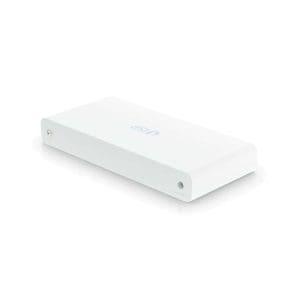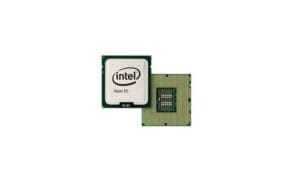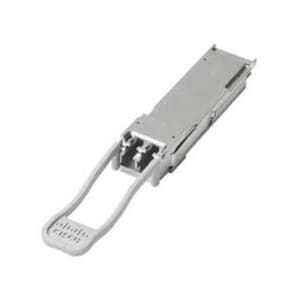The Future of Smart Homes
The Future of Smart Homes
The concept of smart homes has been around for a while, but it's only recently that we've started to see the true potential of this technology. With the advent of IoT, AI, and 5G, the future of smart homes is looking brighter than ever. But what exactly does this mean for us, and how will it change the way we live and interact with our homes? Let's dive in and explore the latest trends and innovations in smart home technology.
Introduction to Smart Homes
So, what are smart homes, exactly? Simply put, a smart home is a residence that's equipped with advanced technology to make our lives easier, more convenient, and more enjoyable. This can include everything from voice-controlled lighting and thermostats to security systems and home entertainment. As "the Internet of Things (IoT) continues to grow and evolve, we're seeing more and more devices become connected and interoperable," says Tom Kerber, Director of IoT Strategy at Parks Associates. This means that our homes are becoming increasingly connected, and we're able to control and monitor various aspects of our living space with ease.

The Role of IoT in Smart Home Automation
One of the key drivers of smart home technology is the Internet of Things (IoT). IoT refers to the network of physical devices, vehicles, and other items that are embedded with sensors, software, and connectivity, allowing them to collect and exchange data. In the context of smart homes, IoT devices can include everything from smart thermostats and lighting systems to security cameras and door locks. These devices can be controlled and monitored remotely, using a smartphone app or voice assistant, and can even learn our habits and preferences over time to optimize our living experience. For example, a smart thermostat can learn our schedule and preferences to adjust the temperature accordingly, saving us energy and money.
AI-Powered Smart Home Assistants
Another important aspect of smart home technology is the use of AI-powered virtual assistants. These assistants, such as Alexa and Google Home, can control and interact with various smart devices in our home, using voice commands or smartphone apps. They can also learn our habits and preferences over time, making recommendations and suggestions to improve our living experience. As "AI is becoming increasingly important in the smart home, as it enables devices to learn and adapt to our behavior," says Michael Philpott, Smart Home Analyst at Ovum. For instance, an AI-powered smart home assistant can learn our daily routine and adjust the lighting and temperature accordingly, making our lives easier and more convenient.
The Impact of 5G on Smart Home Connectivity
The advent of 5G networks is also set to have a significant impact on smart home technology. With its faster speeds and lower latency, 5G will enable more widespread adoption of smart home devices and applications. This means that we'll be able to control and monitor our smart devices in real-time, without any delays or interruptions. As "5G will be a game-changer for the smart home, enabling more devices to be connected and more data to be exchanged," says Patrick Moorhead, President and Principal Analyst at Moor Insights & Strategy. For example, with 5G, we'll be able to stream high-definition video from our security cameras in real-time, allowing us to monitor our home remotely with greater ease and accuracy.
Smart Home Security
One of the most important aspects of smart home technology is security. With more devices becoming connected and interoperable, there's a growing risk of hacking and data breaches. To mitigate this risk, smart home manufacturers are incorporating advanced security measures, such as encryption and biometric authentication, into their devices. For instance, some smart door locks use facial recognition or fingerprint scanning to verify our identity before granting access. Here are some key features to look for in a smart home security system:
- Advanced encryption to protect our data
- Biometric authentication to verify our identity
- Real-time monitoring and alerts to detect any suspicious activity
- Regular software updates to patch any vulnerabilities
The Future of Smart Homes
So, what does the future hold for smart homes? As technology continues to evolve and improve, we can expect to see even more innovative and exciting developments in the smart home space. From voice-controlled robots to augmented reality displays, the possibilities are endless. As "the smart home is becoming increasingly integrated into our daily lives, and we're seeing more and more devices become connected and interoperable," says Stuart Sikes, President of Parks Associates. The future of smart homes is looking bright, and it's exciting to think about what's in store for us.
Finding Entertainment in Unexpected Places
As we explore the latest innovations in smart home technology, it's interesting to note that the concept of interconnected devices and immersive experiences can also be found in other areas of our lives. For instance, the thrill of discovering new smart home devices can be similar to the excitement of trying out new games, where the uncertainty of the outcome is part of the fun. When we're looking for a break from our daily routines, we might find ourselves searching for entertainment online, and stumbling upon Invading Vegas Revenge on Mars slot demo (Play’n GO) can be a great way to unwind and have some fun, as it offers a unique combination of challenge and reward that can be quite engaging. By embracing this intersection of technology and entertainment, we can find new ways to enjoy our free time and make the most of our smart home experiences.
Conclusion
In conclusion, the future of smart homes is all about making our lives easier, more convenient, and more enjoyable. With the advent of IoT, AI, and 5G, we're seeing more and more devices become connected and interoperable, and we're able to control and monitor various aspects of our living space with ease. As we move forward, it's essential to prioritize security and ensure that our smart devices are protected from hacking and data breaches. By doing so, we can unlock the full potential of smart home technology and create a more comfortable, convenient, and enjoyable living experience for ourselves and our loved ones.
Newsletter & Get Updates
Sign up for our newsletter to get up-to-date from us




